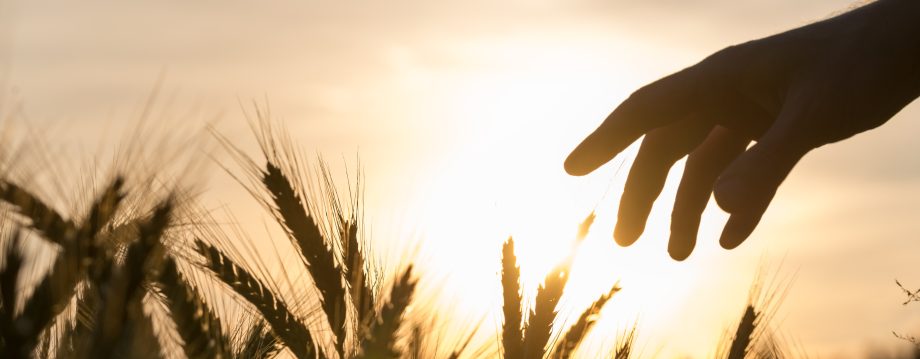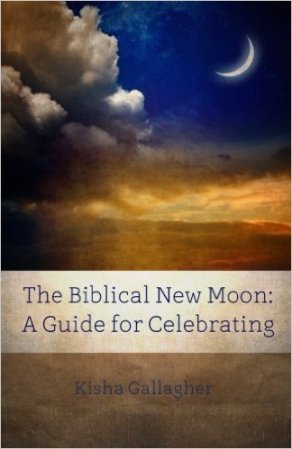B’midbar, in the wilderness, is the biblical name for the book of Numbers. It is the fourth book of Torah and aptly depicts the Israelites’ journey while in the wilderness after leaving Egypt. This particular segment of the Torah chronicles the tragic story of Israel’s unbelief, discontentment, and disobedience. It begins at the foot of Mount Sinai where the children of Israel received the Torah, the Law of Moses, and follows them through a forty year period of trials and testing.
The Promised Land was approximately an eleven day journey from the foot of Mount Sinai to the border of land of Canaan. (Deut 1:2) Yet, YHWH kept them in the wilderness for forty years! Apparently, it wasn’t the distance that stood between the children of Israel and the Promise Land, but the condition of their hearts. The Father’s desire was to prepare them to live in obedience to Him once they arrived. He desired and demanded their complete trust in Him alone. The journey was a painful but necessary part of training Israel to be His unique people.
The wilderness process taught the people who God was and was not. It also taught the people about who they were. We must not forget that we are just like our ancestors and that our “wilderness” is there to teach us the same truths our predecessor’s had to learn. The Torah, the instructions, accomplishes both of these goals. It clearly displays the fact that we are a sinful people, prone to rebellion and doubt. But it doesn’t leave us hopeless, no instead; it teaches us how to relate to our Holy God in our fallen state.
Sukkot (Feast of Tabernacles) is an eight day festival given to commemorate the wilderness journeys of our ancestors. It takes place every year in the seventh month on the Hebrew calendar after Yom Teruah (Feast of Trumpets) and Yom Kippur (Day of Atonement). The primary directives given to us to celebrate this feast can be found in Leviticus chapter 23. We are to dwell in a booth, which is a temporary dwelling place, such as a tent. Verse 43 sums up YHWH’s reason for this commemoration:
“that your generations may know that I made the people of Israel dwell in booths when I brought them out of the land of Egypt: I am the LORD your God.”
We are to always remember this journey as if we ourselves were there and brought out of the land of Egypt. Why? Because once we are redeemed from Egypt (sin), we too will be taken to the foot of Mount Sinai, receive our instructions (Torah) and trek through the dry, hot wilderness before we can enter into the Promised Land. We will experience trials and tests that will teach us about our God and the true state of our own hearts.
There have been a few times that I knew I was in the wilderness and actually thought that the Father was finally taking me into the Promised Land. To my own dismay, I all too soon discovered that instead of removing me from the wilderness, the cloud had simply moved and the camp along with it. I found myself even deeper still in the abyss of the wilderness. I used to cry out: Why? I used to hate the wilderness, but now I realize that it is in the wilderness that God speaks. It is in the wilderness that I learn and grow. It is here that I am prepared for what is to come.
If you’ve never celebrated the feast of Sukkot by going into the “wilderness” and dwelling in “booths”, I suggest you make it a habit. This year we had the pleasure of staying on a friend’s property to camp during the festival. It was wonderful and…awful. I felt a tremendous compassion for the ancient Israelites.
I thought of simple things like using the bathroom. Can you imagine what an ordeal it would have been for an Israelite woman to relieve herself in the middle of the night? She had to go outside the camp and their camp was no small gathering. Or what about all that sand? I live in Florida and the dirt here is almost completely sand. My feet were in a perpetual state of dirtiness the entire week! Once washed, they inevitably were covered in dirt and sand within minutes. Then there is the constant close proximity of your neighbors. We truly do not know what it is to love our neighbor until we live side-by-side with them for an extended period of time. Oh, and our beds! Our big nice cushy beds call out to our crippled backs by the end of the week! Spoiled doesn’t even begin to describe the state of our delicate American hearts (and backs)!
All these little confessions may seem trivial or worldly to the super-spiritual, but I assure you that even the loftiest of us may find ourselves humbled by even an eight-day sabbatical like this. Yes, it is a celebration, but don’t think for a moment that it is not also a test. The Father knows all too well that we need constant reminders in our lives to keep us on the straight and narrow path. The weekly Sabbaths, the New Moons, the yearly Feasts, the seven-year releases, and the Jubilees are all sign-posts that guide us through the wilderness into the Promised Land.
We are each on a journey through the wilderness. It is imperative that we learn everything that this passage offers to us. Sometimes it may seem lifeless, dry, and our thirst for water great. Sometimes the heat may scorch our face and our sweat sting our eyes. Sometimes the night may be so cold and empty that our heart aches from utter loneliness. Sometimes our appetite for the luscious smorgasbord of Egypt cannot be shaken from our longing taste buds. These are the desires of our flesh. We must master them. Our only hope is found in our Redeemer. He alone can satisfy the ever longing groans of our hearts.
He brings Living Water from the Rock and quenches the unbearable thirst. When He stands with us the scorching sun cannot burn our face. He is our Maker and our Husband and wraps His strong arms around us tight and whispers words of love upon longing ears. He changes the desires of our hearts to line up with His will and our appetite is sated by His every Word.
Jeff Benner’s Ancient Hebrew Lexicon of the Bible, describes the pictographic meaning of the Hebrew word, B’midbar, quite eloquently. According to the Hebraic understanding, the “wilderness” is a place of order, or a sanctuary. It shares the same root with “davar” the Hebrew word for “Word, as in speech”. Therefore, the wilderness is a place of order, sanctuary, and a place where YHWH speaks. How different we tend to think of the wilderness! We usually associate it with chaos and a period where hearing the voice of the Father is difficult.
I suggest that we correct our thinking about the wilderness and line up our mind with the Father’s. The physical elements that surround us in the wilderness may appear to us as desolate and empty, but if we adjust our vision just right, we will see that the path is clearly marked and it is filled to over-flowing with the Spirit of the Master! There is a definite order to our wilderness journey and it is a place where He comes and speaks to us.
Perhaps, we simply need ears to hear!
May your Sukkot be blessed! Baruch HaShem!




